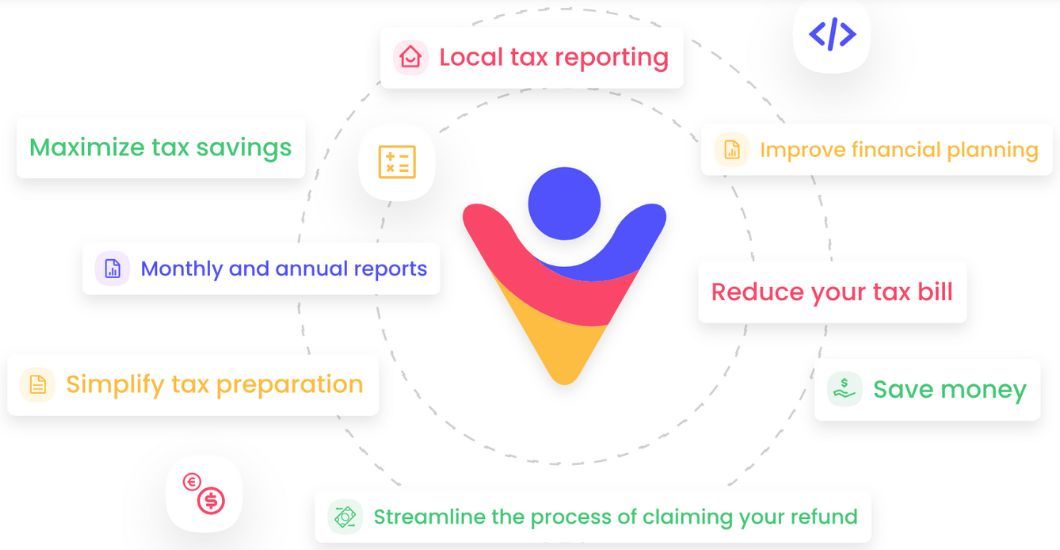Gig Economy Taxes
The gig economy has been on the constant rise, especially after events such as the Covid-19 pandemic, inflation, financial crisis, and the overall change in lifestyles and consumer behaviours. However, being given the opportunity to customise your workload and be your own boss imposes a lot of challenges, with tax management being among the major ones.
So, whether you’re a freelancer, an independent contractor, or a business owner who employs a gig workforce, keep reading. In this article, we cover everything about gig economy taxes, including types of taxes, and tax management solutions for gig workers and businesses.

Is gig economy income taxable?
Working in the gig economy is considered a sort of self-employment where individuals make an income. As such, it is taxable, regardless of the nature of the income. Gig workers need to submit taxes, whether their earnings:
- Come from part-time jobs, remote part-time jobs, side jobs, or temporary arrangements.
- Are not reported on any type of information return form or statement.
- Are in any payment form, including cash, cryptocurrencies, property, or goods.
What taxes do gig workers have to manage as independent contractors?
Independent contractors that operate within the gig economy must pay certain taxes on their incomes. The specific types of taxes can vary depending on the country and jurisdiction where the contractor operates. Here are some examples of the most common taxes across the countries:
- Income taxes – Depending on the jurisdiction, independent contractors need to submit income tax to tax authorities, whether it’s through regular estimated tax payments or annual tax fillings.
- Self-employment taxes – Gig workers in the majority of countries are obligated to pay self-employment taxes (social security taxes + medicare taxes). The percentage varies per different countries.
- Business taxes or licences – Some jurisdictions impose obtaining business licences and paying taxes for operating in some industries or providing specific services.
What taxes do gig companies have to manage?
A gig company refers to an organisation that creates opportunities for workers within the gig economy, including freelancers, independent contractors, and remote workers. Depending on the country and jurisdiction where the organisation operates, there are a few types of common taxes they need to submit:
- Payroll taxes – Gig companies in some countries are required to pay payroll taxes for the independent contractors they work with. Such taxes may include social security taxes, medicare taxes, and unemployment taxes.
- Value-added taxes – Some gig companies need to collect and remit value-added taxes (VAT) for services they provide.
- Income taxes – Gig companies in some countries need to withhold income taxes from contractors’ payments and remit them to the tax authorities in their jurisdictions.
- Corporate income taxes – Gig companies that operate as corporations are required to pay corporate income taxes, depending on the laws and regulations of the country.
- Local business taxes – Some countries impose gig companies to pay local business taxes, such as business licence fees, municipal taxes, and gross receipt taxes.
- Sales taxes – Depending on the nature of services or goods provided, some gig economy companies may be responsible for submitting sales taxes to the tax authorities in the country of operation.

Is gig work taxed differently?
Gig work is taxed differently, depending on several factors such as workforce classification, income, and the tax laws and regulations in the specific country of working. Therefore, the gig workforce can be classified into two major categories, including employees in the organisation, or independent contractors.
In the case of employees, organisations are obligated to withhold income taxes, social security taxes, and Medicare taxes, and submit them to the tax authorities. On the other side, independent workers are responsible for reporting and submitting taxes for the services they provide on their behalf.
Due to the complex nature of tax regulations, it’s recommended that independent contractors keep a detailed record of their incomes, expenses, and the relevant tax forms for the country of operation. Therefore, it can be helpful to seek guidance from tax authorities, or tax professionals to ensure compliance with local regulations, as well as to take advantage of deductions.
How can Native Teams help you to manage your taxes?
Native Teams is a platform that offers Tax Management solutions to businesses, freelancers, and independent contractors in more than 45 countries. By signing up for Native Teams’ Tax Management package, you’re getting access to the following features:
- Tax reporting – The platform is designed to provide comprehensive financial data, including a detailed overview of income, expenses, and other transactions flowing into and out of your Native Teams account, recording local taxes, and keeping track of tax responsibilities and thresholds.
- Tax allowances – The tax allowances feature allows you to seamlessly transfer funds from your Native Teams wallet to your bank account, ensuring that no taxes are deducted in accordance with the specified tax exemptions you have selected.
- Cost-optimisation calculator – By providing your monthly incomes and expenses, Native Teams’ cost optimiser calculator will make a detailed analysis and locate chances for tax deductions in your country.
Benefits of using Tax Management in Native Teams
Native Teams’ tax management solutions can bring a vast of advantages for financial planning and tax-related responsibilities. Let’s explore the key benefits of using Tax Management in Native Teams:
- Local tax reporting – Ensure accurate reporting of local taxes and compliance with local tax laws and requirements.
- Financial planning – Get in-depth financial data and insights to enhance financial planning.
- Tax reductions – Identify chances for tax deductions to reduce your tax liability.
- Money saving – Manage your taxes effectively to save money.
- Tax savings maximisation – Get guidance on tax management to maximise your savings.
- Monthly and annual reports – Generate reports to get a clear overview of your tax-related activities.
- Tax preparation simplifying – Ease the tax preparation process by automating tax calculations and organising financial information.
- Refund process streamlining – Claim tax refunds quickly and efficiently.

Wrapping Up
Operating in the gig economy comes with a package of advantages for both individuals and companies. However, gig work is taxed differently from traditional employment, according to the taxation laws of the specific country of operation.
Native Teams’ Tax Management solutions can help individuals manage their tax liability efficiently, identify chances for tax deductions and refunds, and stay compliant with local taxation laws. Sign up today, or book a demo call in your local language to find out more.
